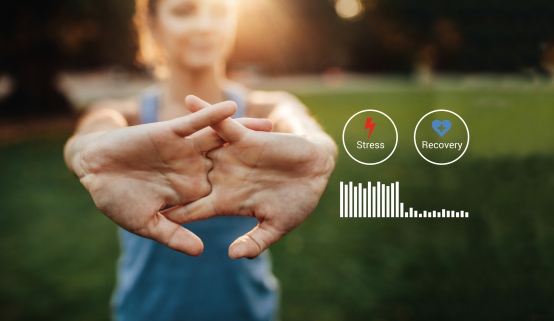Stress: How you can reduce it with simple daily changes
Stress refers to your body’s reaction to challenges and demands. It can be positive or negative, it can be temporary or prolonged or even become chronic!
What is stress?
Stress is the body’s reaction to a challenge or demand. We all experience stress, which can be triggered by a range of events, from minor daily inconveniences to major changes such as divorce or job loss. The reaction to stress varies from anxiety to fear or anger, and can of course be accompanied by physical symptoms such as increased heart rate and blood pressure. Although we often think of it as negative, stress can also come from positive changes in your life, such as a promotion at work or having a new baby.
How can we manage stress in healthy ways?
Stress serves an important purpose: it makes us react quickly to threats and risks. However, prolonged exposure to stress can have effects on our mental and physical health. A plethora of research confirms that elevated levels of stress prevent the body from coping with a physical ailment. Getting rid of stress completely is not possible, but it is possible to manage it in healthy ways, such as the following:
- Eat right. It sounds obvious, yet it is not as important as it should be. A truly proper diet, tailored to our needs and with proper vitamin supplementation where it may be needed, is key to proper hormonal balance and a good mood. (Overeating and drinking may only temporarily mitigate stress, but in the long term they exacerbate it).
- Exercise regularly. This too sounds obvious, yet it is also not as important as it should be. Our bodies were not made to sit. It needs daily exercise. If you can’t do aerobic exercise, which has been shown to help us secrete endorphins (hormones that make us feel better), weights or yoga, and simple daily walking is a great solution. Especially if you’re hitting the 7,000 steps a day.
- Do not smoke and do not use nicotine products. Nicotine users claim that this substance relieves their stress, but it actually does the opposite as it stimulates the body and reduces blood circulation and breathing.
- Study and practice relaxation techniques. Taking time to relax every day helps manage stress and protect the body from the effects of stress. You can choose from a variety of techniques such as deep breathing exercises, progressive muscle relaxation and meditation. There are many online and smart phone apps that provide guidance on these techniques – although some involve a cost to purchase, many are available for free.
- If you are like most people, your life can be filled with too many demands and too little time. Usually this results from choices we make and poor time management. So you need to manage your time better by prioritising and asking for a helping hand when it is needed. In general, take the time you need and take care of yourself.
- ΜDon’t do things that go against your values or force you to make compromises you are not comfortable with. The more your actions reflect your beliefs, the better you will feel, no matter how busy your daily life is.
- Claim your space and time. It’s perfectly okay to say “NO” to stressful demands that require your personal time and energy. You don’t always have to meet the expectations of others.
- Set realistic goals and expectations. It’s okay – and healthy – to realize that you can’t be 100% successful at everything at the same time. Be aware of the things you can control and try to accept what you can’t control.
- Encourage yourself and have healthy self-confidence. In stressful situations, always remind him that there are things you can do well, and identify what they are.
If the stress you are experiencing has become chronic and you can no longer reduce it in the ways mentioned above, then you should seek the help of a mental health professional to help you in a more effective way.

